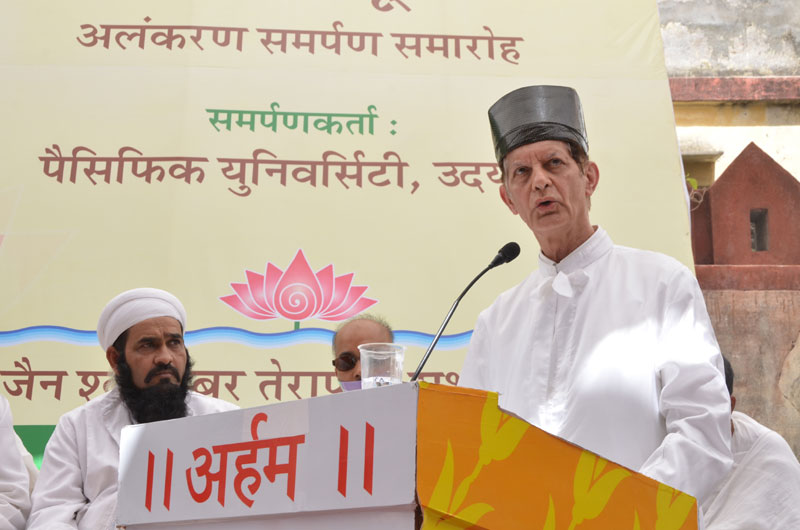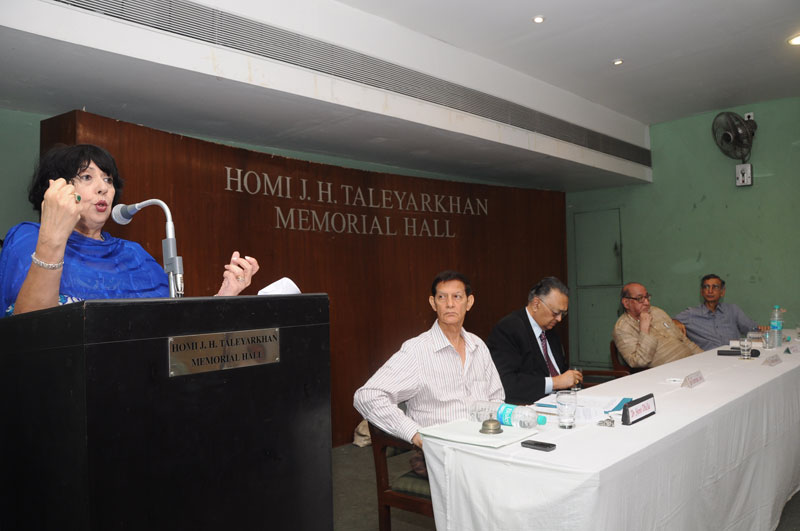IARF Council member Dr. Homi Dhalla reports on three interfaith events in India

On May 28, 2011, Dr. Dhalla was invited by the Jain Spiritual leader Acharya Mahashraman to Udaipur. The occasion was an interfaith conference where the representatives of the various religions were invited to speak on “The Role of Religious Leaders in the Promotion of Moral Values”. There was a large audience comprising of about 5,000 people. Dr. Dhalla in his presentation provided a number of examples from the various religious traditions. He referred to the activism that has become common in Asia’s Buddhist societies. Monks and nuns were leaving their quiet monasteries to oppose oppressive rulers, foreign domination or injustice. As far as the Hindu tradition was concerned, he referred to the Swadhyaya Movement initiated by Pandurang Shastri Athavale in 1997. This spiritual movement has become a formidable force as it has spread over 80,000 villages. Christian leaders were vocal enough to criticize the US invasion of Iraq. Noble work is carried out by Christian religious leaders in fighting AIDS in Uganda, also by the eco-evangelists who speak up for the environment in various Christian churches, and the faith-based jail progammes in the US. He also mentioned that Indian religious leaders should be more vocal about problems such as female infanticide, dowry deaths and communal violence.

Dr. Dhalla organized an interfaith “Hindu-Muslim Dialogue” (above) on June 10, 2011 in Mumbai.
Two scholars from each tradition were invited to participate in this dialogue session, which was very well attended as it was open to the public. The national press was also present at the function (report by DNA, June 12, 2011). As the organizer of this programme, he initially made a presentation on the importance of dialogue today. He commenced his talk about the basic principles of dialogue, the various forms of dialogue and the several initiatives which are taking place in different parts of the globe. In the present scenario, there has been emphasis on Christian-Muslim dialogue, which is imperative due to the rise of Islamophobia. Dialogue between these two traditions is taking place in Turkey, Tunisia, Qatar, Bangladesh, the Philippines and the US.
The four panelists spoke about the various measures which would foster better relationship between Hindus and Muslims in the sub-continent. They felt the need to introduce interfaith education at the school level so that children would be aware of the various religious traditions, which would in turn make them more tolerant. The various religious festivals should also be celebrated in schools so that children can know their import. Peace education is another element which could also be introduced in the schools.
Some speakers also spoke about the politicization of religion which is taking place in certain parts of India. Sometimes ignorant masses are mislead and instigated by politicians to create disharmony between Hindus and Muslims. One of the speakers spoke about the similarities in the scriptures of the two traditions. Another speaker emphasized that the main reason for religious conflicts was egoism and greed.
On July 23, 2011, he was invited to the 11th Anniversary Celebrations of Sri Ramanuja Mission Trust in Chennai. He spoke about the importance of corporate social responsibility and the need for industrial houses and multinationals to take up this cause. His paper entitled “CSR is the Soul of the Tata Industrial Empire” was well received, and has been placed on their website.
